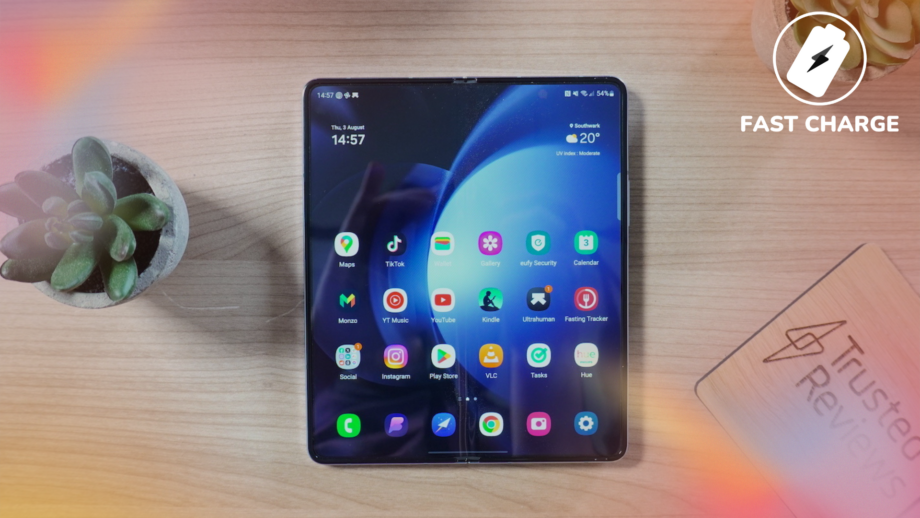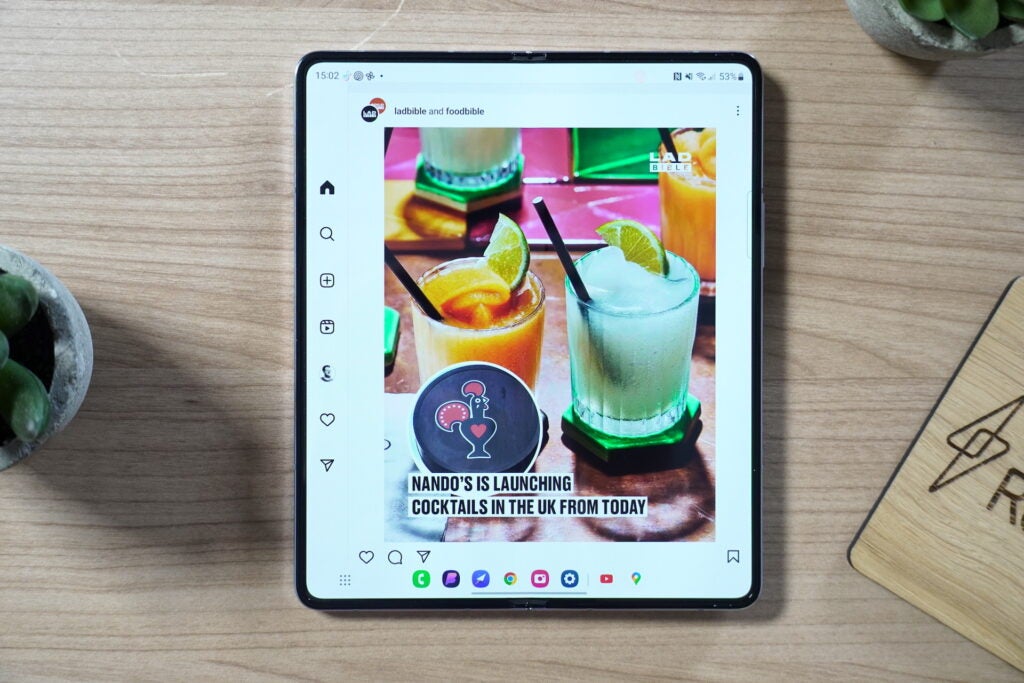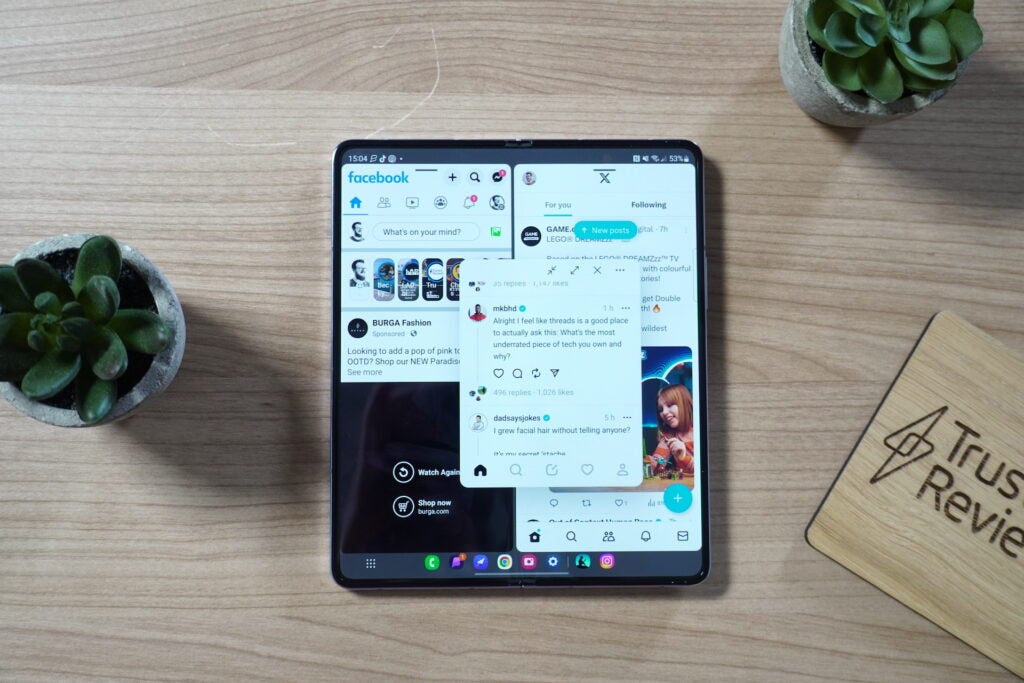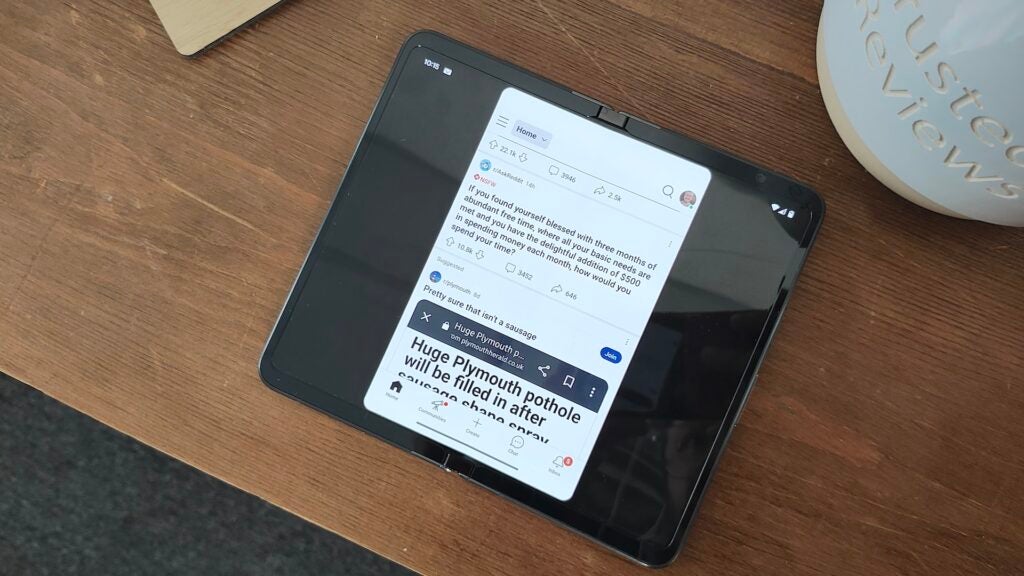Fast Charge: Samsung has solved the big problem with book-style foldables

OPINION: We’ve seen great advances in hardware since the first foldables awkwardly stumbled onto the market in 2019, with 2023 foldables not only boasting vastly superior hinge systems and foldable displays but better performance, cameras and even battery life.
However, one consistent issue has plagued book-style foldables since inception regardless of their design or build quality – and it’s nothing to do with hardware. It all really comes down to app support, or should I say, a lack of app support.
App support has been the one problem that I’ve consistently struggled with when using book-style foldables, whether that’s earlier foldables like the Samsung Galaxy Z Fold 3 and Oppo Find N or more recent entries like Google’s Pixel Fold – and that’s literally made by the company that develops the Android OS.
It’s the one thing that stops me from being able to recommend book-style foldables to anybody but the most dedicated Android fans, as not being able to use some of your favourite apps on the internal display is both frustrating and limiting to the overall experience. What’s the point of a large display if the majority of popular apps refuse to support it?
However, it seems Samsung has done what giants like Oppo and Google have yet to manage – and that’s getting app support for big-name apps like Instagram, TikTok, Facebook and Twitter for its Galaxy Z Fold collection. I can’t understate just how much of a game-changer this is for the book-style foldable in general.
It’s something I’ve discovered while reviewing the Samsung Galaxy Z Fold 5, and it means that I can finally use the internal display to its full advantage for the first time.
It’s a thoroughly enjoyable experience being able to scroll through Instagram and be able to both see images in higher quality and watch Instagram Stories without cutting off the top and bottom thirds of the video, as has been the experience in the past.

It’s not just Instagram though; I can browse my banking app in detail, access a split-screen layout in WhatsApp for easier chat switching, read Reddit posts and more without having to deal with squashed, slightly janky-looking UIs or dealing with black bars on either side of the app.
It has also encouraged me to actually use the phone for split-screen multitasking, with the vast majority of supported apps also compatible with Samsung’s split-screen system, either putting two apps side-by-side or allowing them to run in floating windows. The ability to run benchmarks and input the results into my Google Sheets spreadsheet without constantly switching from one app to the other was very handy.

It’s such a stark contrast to the experience I had with the Z Fold 4 in 2022, with the foldable still lacking key apps at launch. Of course, all apps that support the Z Fold 5 also work on the Z Fold 4, 3 and older models, so it’s a win for Samsung foldables in general.
Importantly, app support seems specific to the relatively boxy aspect ratio of the Z Fold’s inner 7.6-inch display as the experience is shockingly different on the Google Pixel Fold. Due to its wider, squatter design than the Z Fold 5, it’s essentially back to square one, trying to tempt developers to adopt the slightly tweaked form factor.

It’s likely that similarly designed book-style foldables like the Honor Magic Vs will also be able to take advantage of the increased app support for the form factor, but it seems that Samsung has been the driving force behind the push, and it’s something it should be commended for.
It’s not a complete collection just yet, but Samsung is way further along than any other brand I’ve experienced so far.


